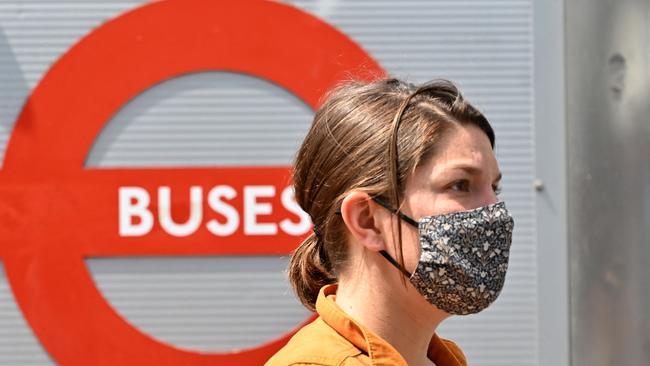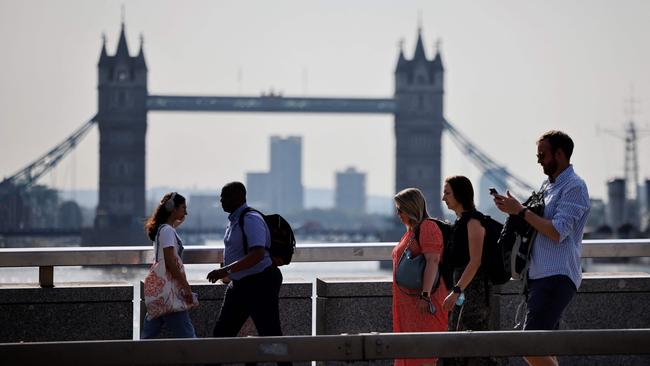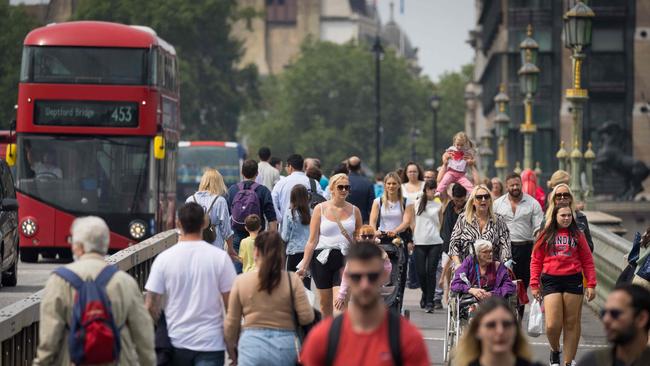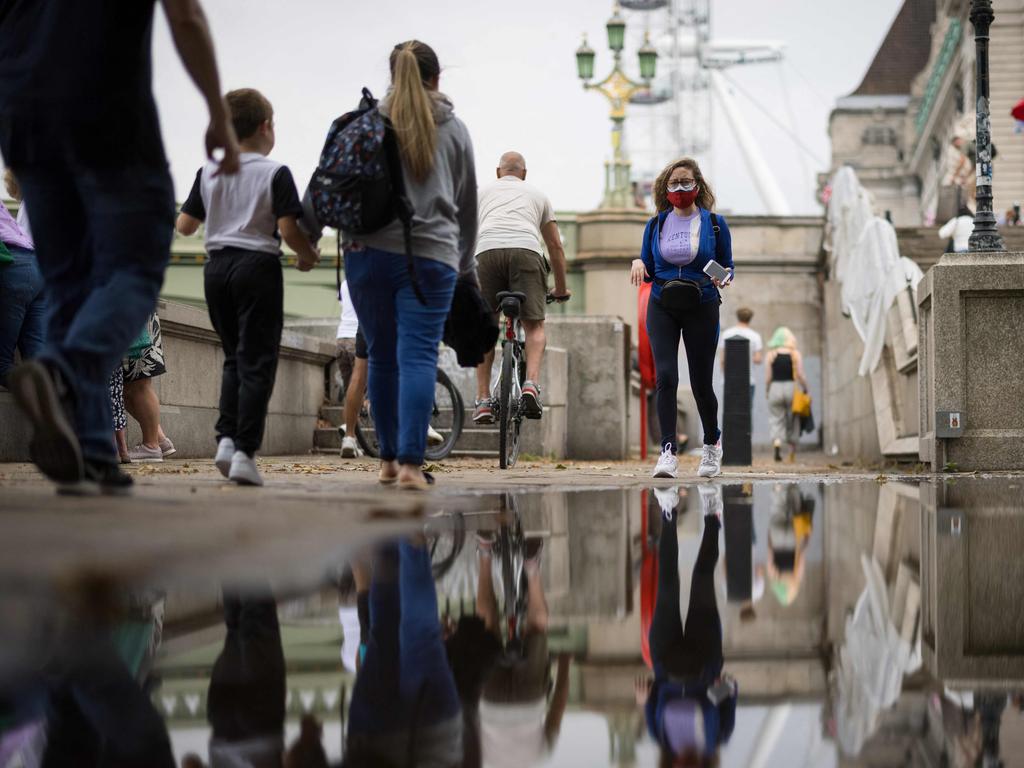UK: Pings, jabs and hot days hold clues to falling Covid cases
The drop in infections appears to have been driven by many factors. What does it mean and what can Britons expect in the coming winter?
The fall in daily cases of the coronavirus in the UK is welcome. It is also a puzzle. “It’s quite surprising that it has dropped quite so quickly, in such a spiky fashion,” says Professor Sir Mark Walport, a former chief scientific adviser to the government who is now a member of Sage.
“It’s much better news than the alternative but I think that everyone’s scratching their heads a little bit as to exactly what the explanation is.”
It is far from certain that the trend will persist as the effects of the July 19 reopening in England filter through. For the moment, though, experts suspect that several factors have combined to produce a remarkably sharp fall.
SCHOOL HOLIDAYS
Children rarely fall seriously ill with the virus but they transmit it. As more and more adults have been vaccinated, the relative importance of children in spreading the virus has increased.
“This was one of the reasons the government delayed plans to move to stage four [of the reopening plan] - so that the reopening would coincide with the end of the school term,” said Professor Mark Jit, who sits on the government’s Spi-M committee of disease modellers.
It is not only classes that have finished. The end of car pooling and the daily gaggle of parents at the school gates have robbed the virus of chances to spread. These effects will be starting to be felt.
The holidays will not last for ever. “But hopefully this respite will give time for the rest of the eligible population to be fully vaccinated, monitor the impact that the current case numbers have on hospitalisations and deaths, and look out for any changes due to new variants,” Jit said.
LESS TESTING?
It is possible that there are problems with the testing system, said Dr Christopher Jewell, of Lancaster University, who also sits on Spi-M.
“People may be less inclined to get tested if they have summer holidays booked, there may be supply-chain disruptions in getting test kits sent out or there may be a data glitch,” he said. “We will know more as the week unfolds.”
The school holidays mean that children are no longer being screened with rapid lateral flow tests. However, the dip in testing seen in recent days does not explain a much larger fall in cases.

FOOTBALL
England’s journey from its first Euros match against Croatia on June 13 to the final against Italy on July 11 gave the country something to cheer. It also almost certainly drove up rates of coronavirus transmission, creating its own male-dominated “mini-wave”. Men were more likely to gather inside to watch England play and, as the team progressed, they ended up having higher levels of infection than women.
The steep fall in cases may partly reflect the end of the competition. In Scotland, with the team knocked out on June 22 in the group stages, cases began to fall earlier than in England.
ANTIBODIES
About nine in ten adults would have tested positive for antibodies against the virus, either from vaccination or natural infection, at the end of last month, according to a report from the Office for National Statistics published last Wednesday. That means the virus has far less opportunity to spread than during the first and second waves. It does not explain all of the drop in cases: if immunity in the community were the cause, you would expect a gentler bell-shaped curve of infections, rather than the steep plunge recorded in recent days. Also, why would Scotland have got there earlier than England?

However, there is no doubt that the jabs, which have been given to 88.1 per cent of the adult population, with 70.5 per cent fully vaccinated, are performing well. “Hospitalisations and deaths are starting to track cases but at a far, far lower level - by the best estimates around about ten times lower maybe more - than they would have done before,” said Professor Mark Woolhouse, of the University of Edinburgh, who sits on Spi-M but was speaking in a personal capacity.
THE PINGDEMIC
Large numbers of self-isolation alerts have stoked fears about food supplies, NHS care and transport being disrupted but they are also likely to reduce infections. “The fact is that the [NHS Covid] app is doing what it should do,” Walport said. “People have this extraordinary reaction, that if the cases go down, it was because you [the scientists who warned of the potential for high cases] were wrong, as it were, in your advice, rather than the advice has caused behaviours that have actually brought it under control.”

OUR BEHAVIOUR
July 19 has been and gone but the English are not yet behaving with the kind of abandon that would allow the Delta variant to reach its full potential. Some of us are still wearing masks, others are avoiding public transport. “There wasn’t a sort of instantaneous ‘take all the brakes off and party like there hadn’t been a pandemic’,” Walport said.
The weather has helped. A heatwave means more open windows, better ventilation in homes and more outdoor gatherings. It is much easier to fight the virus in the sun.
COULD THIS BE A FALSE DAWN?
If you picture the epidemic as a fire, we are still far from a situation where it has burnt through all of its available fuel. “There are still in the UK at least eight million adults who have been neither vaccinated, nor naturally exposed to infection, so there’s plenty of materials for the virus to work with,” Woolhouse said. Few experts would be surprised if daily case rates rose again as the effects of July 19 feed through.
Beyond that lies the question of what happens in the winter. How long will people retain immunity? Will we see a new variant that escapes vaccines? What effect will schools have when they go back? How will the NHS cope with the virus as well as a nasty wave of flu?
At present there are grounds for optimism. When this period of speculation ends, though, we’ll inevitably enter another.
The Times




To join the conversation, please log in. Don't have an account? Register
Join the conversation, you are commenting as Logout